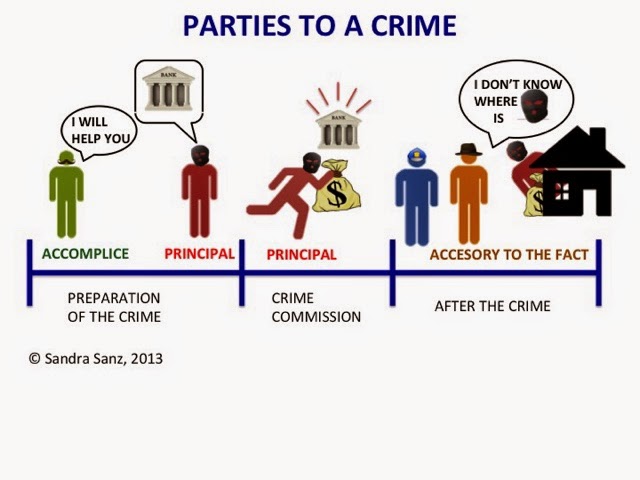Miranda Rights and Constitutional Rights of the Accused
I have already defined the meaning of the accused in my previous post re: Respondent Versus Accused Versus Convict. So if you would like to know what I am mentioning is all about, please read the said post.
An accused is not yet a convict. In the Philippine justice system, an accused is PRESUMED INNOCENT until proven otherwise. Meaning, no matter how guilty the accused may appear, he is still innocent until the prosecution can prove his guilt beyond reasonable doubt.
From the time the accused is apprehended, he is entitled to his rights that nobody can waive in his behalf. Some of these rights are known as MIRANDA RIGHTS or MIRANDA WARNINGS derived from the landmark case of Miranda vs. Arizona, 384 U.S. 436 (1966).
The Miranda Rights of the Accused are:
1. The accused has the right to remain silent.
2. Anything the accused says can and will be used against him in the court of law.
3. The accused has the right to talk to his counsel of his own choice and have him present while he is being questioned.
4. If the accused cannot afford to hire the services of a counsel, one will be appointed to represent him before any questioning is made if he wishes to.
5. The accused can decide to exercise these rights at anytime and not answer any question nor make any statement. (http://uberdigests.blogspot.com/2013/05/miranda-rights-in-philippines.html)
In the 1987 Philippine Constitution, the accused is also provided with rights. These are the constitutional rights of the accused as espoused in Article III or better known as the Bill of Rights in our constitution:
Section 11. Free access to the courts and quasi-judicial bodies and adequate legal assistance shall not be denied to any person by reason of poverty.
Section 12. (1) Any person under investigation for the commission of an offense shall have the right to be informed of his right to remain silent and to have a competent and independent counsel preferably of his own choice. If the person cannot afford the services of a counsel, he must be provided with one. These rights cannot be waived except in writing and in the presence of counsel.
(2) No torture, force, violence, threat, intimidation, or any other means which vitiate the free will shall be used against him. Secret detention places, solitary incommunicado, or other similar forms of detention are prohibited.
(3) Any confession or admission obtained in violation of this or Section 17 hereof shall be inadmissible in evidence against him.
(4) The law shall provide for penal and civil sanctions for violations of this section as well as compensation to and rehabilitation of victims of torture or similar practices, and their families.
Section 13. All persons except those charged with offenses punishable by reclusion perpetua when evidence of guilt is strong, shall before conviction be bailable by sufficient sureties, or be released on recognizance as may be provided by law. The right to bail shall not be impaired even when the privilege of the writ of habeas corpus is suspended. Excessive bail shall not be required.
Section 14. (1) No person shall be held to answer for a criminal offense without due process of law.
(2) In all criminal prosecutions, the accused shall be presumed innocent until the contrary is proved, and shall enjoy the right to be heard by himself and counsel, to be informed of the nature and cause of the accusation against him, to have a speedy, impartial, and public trial, to meet the witnesses face to face, and to have compulsory process to secure the attendance of witnesses and the production of evidence in his behalf. However, after arraignment, trial may proceed notwithstanding the absence of the accused provided that he has been duly notified and his failure to appear in unjustifiable.
Section 16. All persons shall have the right to a speedy disposition of their cases before all judicial, quasi-judicial, or administrative bodies.
Section 17. No person shall be compelled to be a witness against himself.
Section 18. (1) No person shall be detained solely by reason of his political beliefs and aspirations.
(2) No involuntary servitude in any form shall exist except as a punishment for a crime whereof the party shall been duly convicted.
Section 19. (1) Excessive fines shall not be imposed, nor cruel, degrading or inhuman punishment inflicted. Neither shall death penalty be imposed unless for compelling reasons involving heinous crimes, the Congress hereafter provides for it. Any death penalty already imposed shall be reduced to reclusion perpetua.
(2) The employment of physical, psychological, degrading punishment against any person or detainee or the use of substandard or inadequate penal facilities under subhuman conditions shall be dealt with by law.
Section 20. No person shall be imprisoned for debt or non-payment of a poll tax.
Section 21. No person shall be twice put in jeopardy of punishment for the same offense. If an act is punished by a law and an ordinance, conviction or acquittal under either shall constitute a bar to another prosecution for the same act.
For emphasis, when the person is investigated by a peace officer or a policeman, he is already entitled to his constitutional rights. These are known as the rights of the accused under custodial investigation. These are:
* The right to be informed of his right to remain silent and to have a competent and independent counsel preferably of his own choice.
* If the person cannot afford the services of counsel, he must be provided with one.
* These rights cannot be WAIVED except in writing and in the presence of counsel.
When the case of the accused is already pending before a court, the accused has also rights as provided in our constitution:
* The accused shall be presumed innocent until the contrary is proved.
* The right to be heard by himself and counsel.
* The right to be informed of the nature and cause of the accusation against him.
* The right to have a speedy, impartial, and public trial.
* The right to meet the witnesses face to face.
* The right to have a compulsory process to secure the attendance of witnesses and the production of evidence in his behalf.
* The right to post bail unless otherwise provided by law.
Please take note that these rights of the accused CANNOT BE WAIVED EXCEPT IN WRITING AND IN THE PRESENCE OF THE COUNSEL.
Respondent Versus Accused Versus Convict
Respondent Versus Accused Versus Convict
Respondent Versus Accused Versus Convict


Comments
Post a Comment